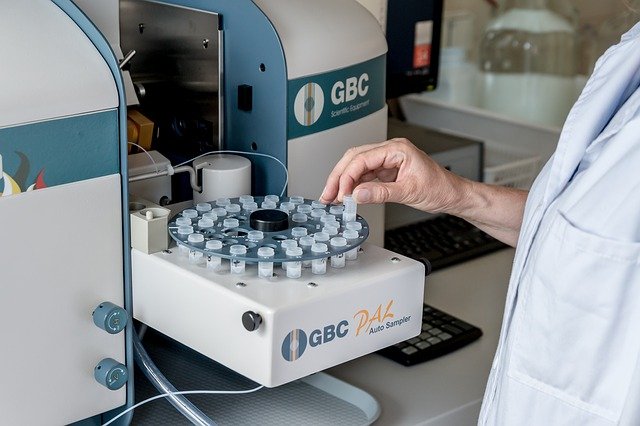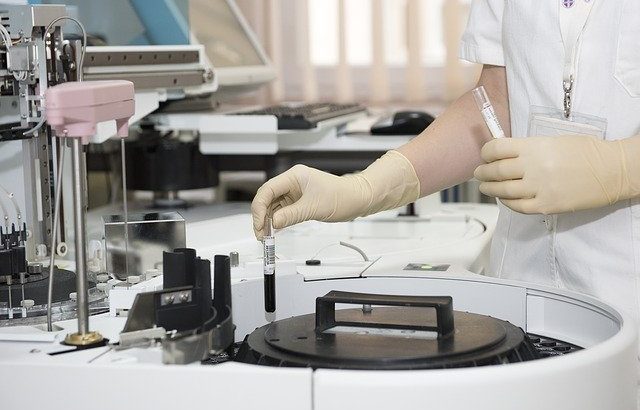What Is a Veterinary Pathologist?
The veterinary medicine industry encompasses dozens of professions. While they all relate in some way to treating, preventing and controlling diseases and injuries in animals through the use of medicine, some of these professions are specialized. Veterinary pathology, for instance, is a specialized veterinary medicine profession. There are veterinary pathologists who play an important role in preserving the health and wellness of animals. What is a veterinary pathologist exactly, and what do they do?
Overview of Veterinary Pathologists
Veterinary pathologists are doctors of veterinary medicine who specialize in the diagnosis and treatment of diseases. All licensed veterinarians can diagnose and treat diseases as well. It’s something they learn during a Doctorate of Veterinary Medicine (DVM) program, which all veterinarians must complete to become licensed in their state. Veterinary pathologists simply undergo extra training that focuses on animal diseases. They are able to better identify, and therefore treat, diseases in animals than traditional veterinarians because they receive specialized training.
To better understand what veterinary pathologists do, you should familiarize yourself with the term “pathology.” Pathology is defined as the branch of medicine involving the examination of tissue or fluid samples to diagnose and investigates diseases. Some pathologists work in hospitals where they diagnosis diseases in humans. Veterinary pathologists, on the other hand, work in veterinary clinics, zoos, universities and research centers where they diagnosis diseases in animals.
Anatomic vs Clinical Veterinary Pathologists
There are two primary types of veterinary pathologists: anatomic and clinical. Both types of veterinary pathologists focus on the diagnosis and treatment of diseases in animals. With that said, they aren’t necessarily the same. Anatomic veterinary pathologists are those who examine tissue samples, whereas clinical veterinary pathologists are those who examine fluid samples.
To diagnose and treat a disease in an animal, a veterinary pathologist may need to collect a sample from the animal. Some veterinary pathologists specialize in the examination of tissue samples, whereas others specialize in the examination of fluid samples. They are both considered veterinary pathologists; they simply have different forms of expertise. Anatomic veterinary pathologists are experts in examining tissue samples. Clinical veterinary pathologists are experts in examining fluid samples.
The American Veterinary Medical Association (AVMA) recognizes anatomic pathology and clinical pathology as official veterinary specialties. Official veterinary specialties are branches of veterinary medicine that focus on a particular field of animal-related medicine. There are currently 41 official veterinary specialties recognized by the AVMA, two of which include anatomic pathology and clinical pathology.

Why Veterinary Pathologists Are Important
Veterinary pathologists are important for many reasons. For starters, they help to stop the transmission of infectious diseases in animal populations. No animal is immune to disease. There are diseases that affect all species of animals. Infectious diseases, of course, can often spread while quickly taking over a given area. Veterinary pathologists work to stop the spread of infectious diseases in animals. Using the data gathered from tissue or fluid examinations, they can determine which regions are affected by the disease as well as the percentage of animals in those regions that are infected. All of this information can assist veterinary pathologists with stopping the disease.
Many veterinary clinics require the expertise of veterinary pathologists. Even with one or more licensed veterinarians on their payroll, clinics often need veterinary pathologists to diagnose and treat diseases in animals.
How to Become a Veterinary Pathologist
Because it’s a specialized field of veterinary medicine, becoming a veterinary pathologist isn’t easy. It requires hard work and dedication. You’ll have to first complete a DVM program. This four-year program will teach you the fundamentals of veterinary medicine. After completing a DVM program, you can then obtain a license in your state to practice as a licensed veterinarian.
Veterinary pathologists, of course, aren’t the same as licensed veterinarians. They are specialized veterinarians who focus on the examination of tissue or fluid samples, which they use to diagnose and treat diseases and animals. Once you’ve completed a DVM program and obtained your license, you’ll typically need to complete an internship, followed by a residency. Internships usually last for one year. Residencies usually last for two to three years.
You may want to become board certified as well. Board certification requires even more training. The AVMA offers board certification for all of its recognized specialties, including clinical pathology and anatomic pathology. As a board-certified veterinary pathologist, you should have an easier time finding employment. Clinics, zoos, research centers and other veterinary facilities will be more likely to hire you if you are board certified. Nonetheless, many veterinary pathologists aren’t board certified. Board certification is simply an optional form of training that can help you succeed as a veterinary pathologist.
In Conclusion
Veterinary pathologists are veterinarians who perform examinations to diagnose and treat diseases in animals. Some of them examine tissue samples, whereas others examine fluid samples. By performing these examinations, they can stop the spread of infectious diseases in animal populations.

